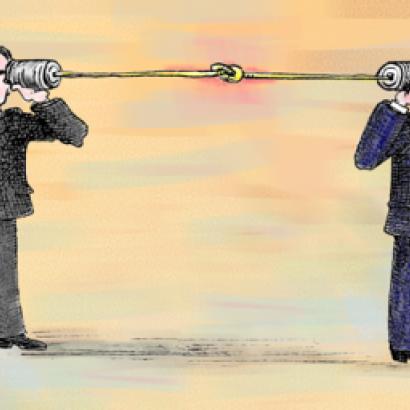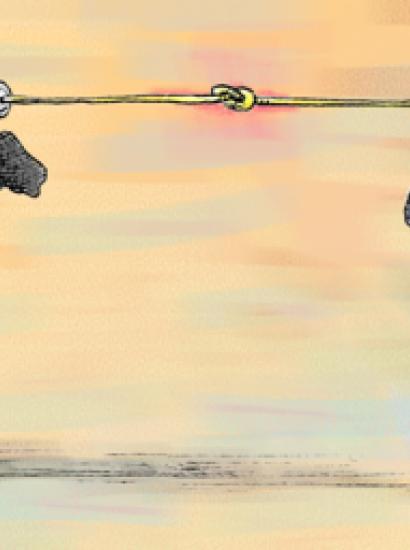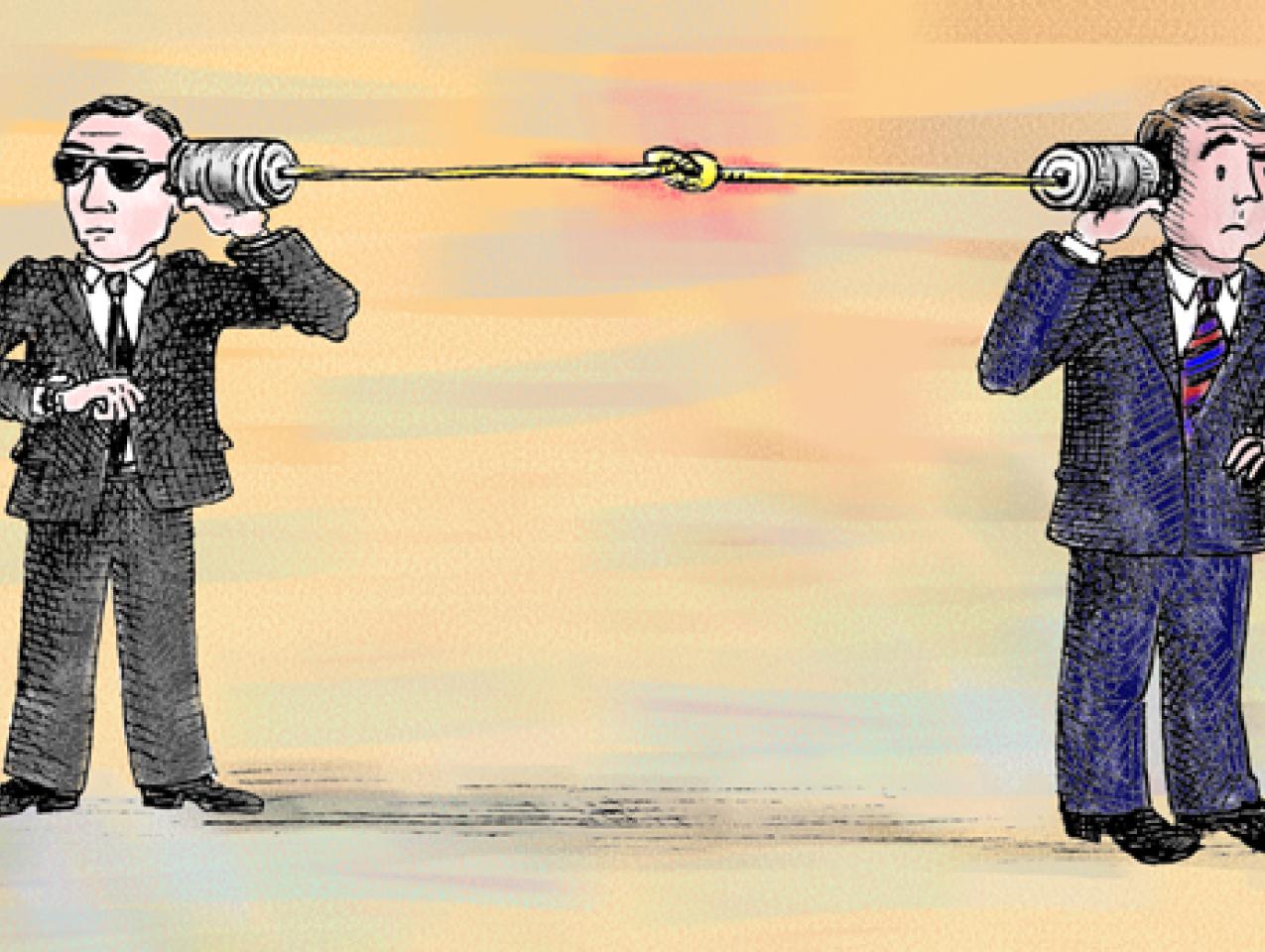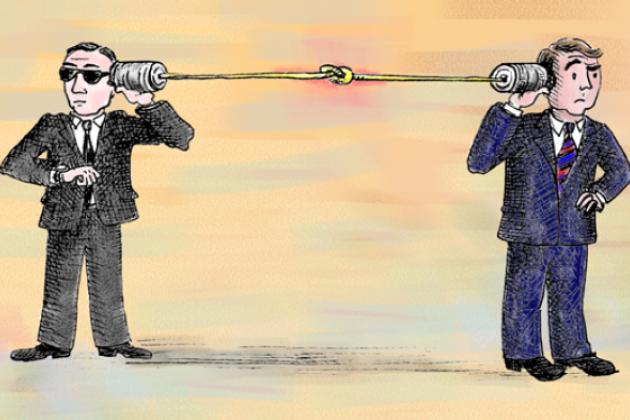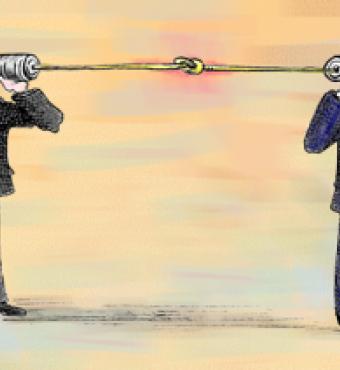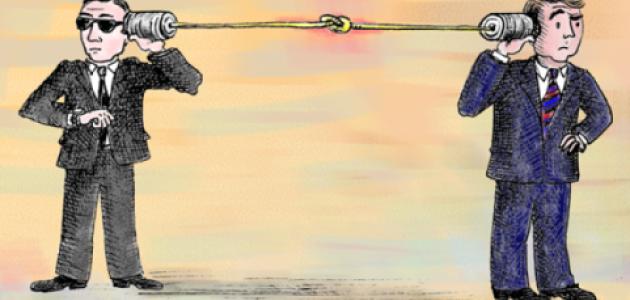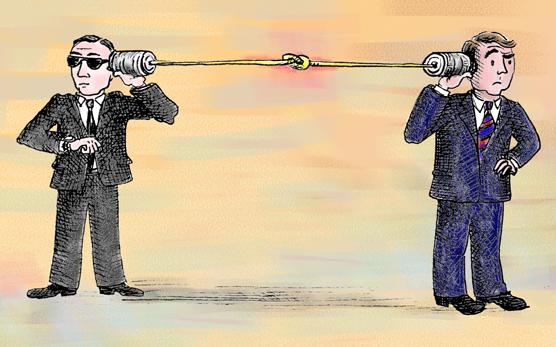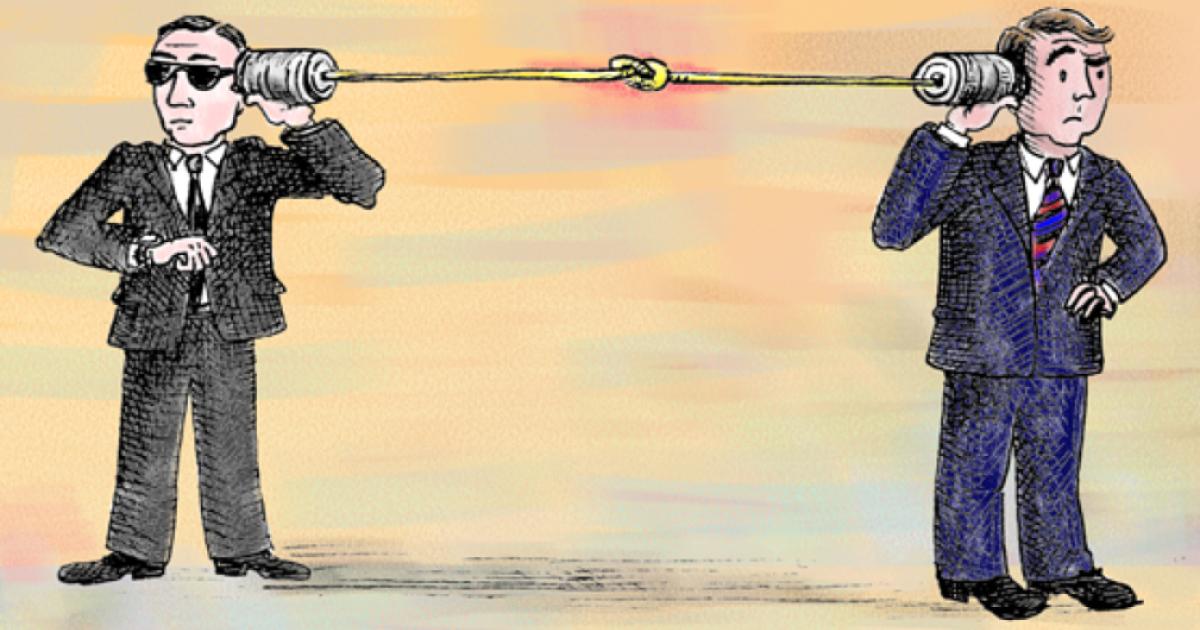- International Affairs
- US Foreign Policy
- Law & Policy
I was a lawyer at the CIA from 1976 through 2009, a 34 year span that coincided with the birth and evolution of the Agency’s relationship with its overseers in the Congress, specifically, the House and Senate select committees on intelligence. Indeed, I owe to Congress the fact that I was hired at the CIA all those years ago. The Senate panel established in 1975 to investigate the CIA’s misadventures and misdeeds of the previous quarter century—known as the “Church Committee” because of its chairman, the Idaho Democrat Frank Church—had, among its final recommendations, urged the Agency to supplement its then-meager and entirely “inbred” legal staff with new and younger attorneys who had no previous ties to the Agency.
I was in that first surge of new lawyer hires, the eighteenth lawyer to join the Office of General Counsel; little did I realize that this would mark the beginning of OGC’s exponential growth over the next three decades, culminating in a legal staff that was six times that number by the time I retired as the CIA’s top legal advisor in late 2009.
So there I was, newly arrived on the scene at the CIA, just about the same time that Congress created its first permanent set of committees devoted exclusively to intelligence matters. The two committees, one in the House and one in the Senate, would immediately and forevermore be referred to (at least by us at the Agency) as HPSCI and SSCI, respectively. For my entire career, I would deal with these committees on a more or less continuing basis, usually in times of controversy and turmoil (which is, of course, usually the times when lawyers tend to become involved in most things).
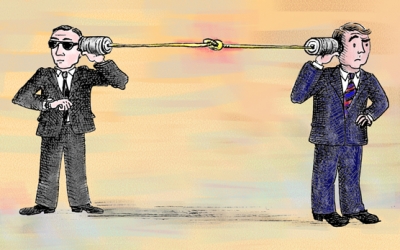
Illustration by Barbara Kelley
In fact, looking back now, the two events that would have the most significant and lasting impact on my career—the Iran-Contra affair in the mid-80s and the CIA’s counterterrorist detention and interrogation programs in the post-9/11 years—involved in large part my interactions with the Congress. And so, drawing from those two milestones, plus countless other episodes I witnessed or participated in over the years, I offer here a few observations on the state of relations between the CIA and its overseers on Capitol Hill. Specifically, this is my personal perspective on why I think the relations have gone inexorably downhill over the past three-plus decades. There are a number of reasons I could cite for this unfortunate development, but in this piece I will focus on the one reason that I believe stands above all others: A failure to communicate.
With the notable exception of the Iran-Contra debacle, I never saw any evidence or even sentiment at the CIA for a deliberate policy of withholding information from the intelligence committees, or misleading them about what the CIA was up to. On the contrary, those of us who spent our careers at the Agency always understood that being forthcoming with Congress—especially when the information was politically sensitive and/or unfavorable to the Agency—was not only “good government,” but also could provide the CIA with a buffer of protection from subsequent criticism and political attack. However, the conundrum has always been in trying to discern what information the CIA should report to the Hill, and when exactly it should be reported. During my many years at the Agency, we never seemed to get it quite right.
Part of the problem can be traced to the statutory benchmarks Congress established for reporting matters to the intelligence committees, which consist of vaguely-couched terms like keeping the committees “fully and currently informed on all intelligence activities,” including “significant anticipated intelligence activities.” For new, presidentially-authorized covert action programs (“Findings”), it was always clear and understood that these had to be reported on a timely basis (in practice, virtually always within 48 hours of the presidential authorization). Beyond that, however, the CIA has over the years gotten little more in the way of concrete guidance from Congress.
To some inside the agency, telling Congress more, rather than less, seemed feckless.
For its part, the CIA has made periodic efforts to fill the void. Some years ago, for example, the Agency established internal guidelines that set out certain criteria, the presence of which in any intelligence activity (be it a covert action, intelligence collection, or counterintelligence) would trigger a congressional reporting obligation. These guidelines, which I helped develop, were not intended to be necessarily comprehensive, and probably were not flawless. But they were a good-faith effort to arrive at some specific ground rules in a critical but murky area. At minimum, we hoped they would lead to a productive dialogue and shared understandings with our congressional overseers.
For whatever reason, however, the intelligence committees have been reluctant to get pinned down in this area. Instead, with respect to reporting obligations, they have given the Agency the Justice Stewart standard: “You’ll know it when you see it.” Nobody—not the committees, and certainly not the CIA—ever espoused the view that we ought to report everything. So for us at the Agency, the question always came down to: Is this something Congress needs to know about? Or wants to know about?
The latter question was in some respects more vexing. I cannot recount how many times over the years we would decide to tell our committees (almost always in committee staff channels) about some breaking development or some important or at least interesting intelligence matter, and the response we consistently received was: Why are you guys bothering us, and wasting our time, with this trivia? Reactions like that did not exactly encourage a mindset at the Agency for fulsome disclosure. Indeed, it harmed the cause for “transparency advocates” inside the CIA (like me, as time went on) because it emboldened the Agency hardliners in their view that telling the committees more, rather than less, was feckless.
And then there was yet another equally thorny question that we faced far too often, one that typically arose when there was “bad news” to report—in short, when the Agency had screwed up one of its operations. Is it better to tell the committees the bad news right away, when the underlying facts may not yet be fully clear (as frequently happens when the event has happened overseas, and the first reports are only just trickling in)? Or, is it better to wait until the picture is complete, so we can then provide a detailed and definitive blow-by-blow account?
In other words, in applying Congress’s cryptic standard of “fully and currently informed,” should we emphasize the “currently” or the “fully”? Put another way, do we risk reporting too little about something (or worse, something that may later prove to be inaccurate), or reporting it too late?
Too often, the CIA did not live up to its responsibilities.
And, finally, there was always the ancillary question of whether the report to the committees should be oral (when time is deemed of the essence, in what we would call a “burst transmission”), or in written form, containing as many reliable facts as possible (which, of course, takes more time, but would serve to document what exactly we told the committees, and when).
I regret to say that in my time at the CIA, we never did really “crack the code,” so to speak, on any of these questions. Let me cite but one example, among many others. I vividly recall an incident that occurred during one of those many high-risk operational missions conducted in the early post-9/11 years. Our rendition (an involuntary non-judicial transfer) of a suspected high-value terrorist had gone terribly awry. As the first alarming fragments of information came in from the field, everyone in CIA senior management agreed that the committees needed to be informed. But then the debate began about how and when to do it. The information was disturbing but still incomplete, confusing and in certain respects contradictory. Actually, this was not an unusual spot for CIA to be in during those tense, frenetic, initial years after the 9/11 attacks.
So we opted for what we thought was the prudent course, which was to wait until we knew for sure what had happened, and why. But reliable facts were slow in coming, so several days later we decided to give a preliminary, albeit written, “heads up” to the committees. To our collective dismay, we later discovered that the preliminary report contained a few statements that proved to be inaccurate. In essence, then, we had put ourselves in the worst of all possible worlds: We didn’t report the flap right away, and when we did, we got some of the details wrong. Understandably, the committees were livid, charging simultaneously that we failed to report an intelligence debacle on a timely basis, and then misled them when we did report it.
My main point in all of this is not to portray the Congress as the cause and the CIA as the victim in what I found to be an increasingly fractious relationship between the Agency and its Congressional overseers over the course of my long career. Far too often, the CIA did not live up to its responsibilities in this area, and it is a failure for which the Agency repeatedly paid a price, especially from the Iran-Contra years onward. But I would submit that virtually every time I saw it happen, it was because the Agency either simply dropped the ball—we knew we needed to inform the Congress about something, we intended to tell them, but we simply didn’t follow through—or because we were operating under frustratingly ambiguous standards imposed on the Agency by a Congress that has grown ever more suspicious of CIA’s motives and commitment to the oversight process. For that dispiriting state of affairs, there is blame that can be fairly placed on both parties in the relationship.
A final note. I retired from CIA two years ago and have had little contact with my former colleagues since. But in November 2010, HPSCI announced, following a review of intelligence community Congressional notification practices, that it was making a series of recommendations to improve the system. The Director of National Intelligence subsequently issued new guidelines in the area. So perhaps the communication lines between the CIA and the Congress are markedly better now. Hope does spring eternal, even in the intelligence community.








